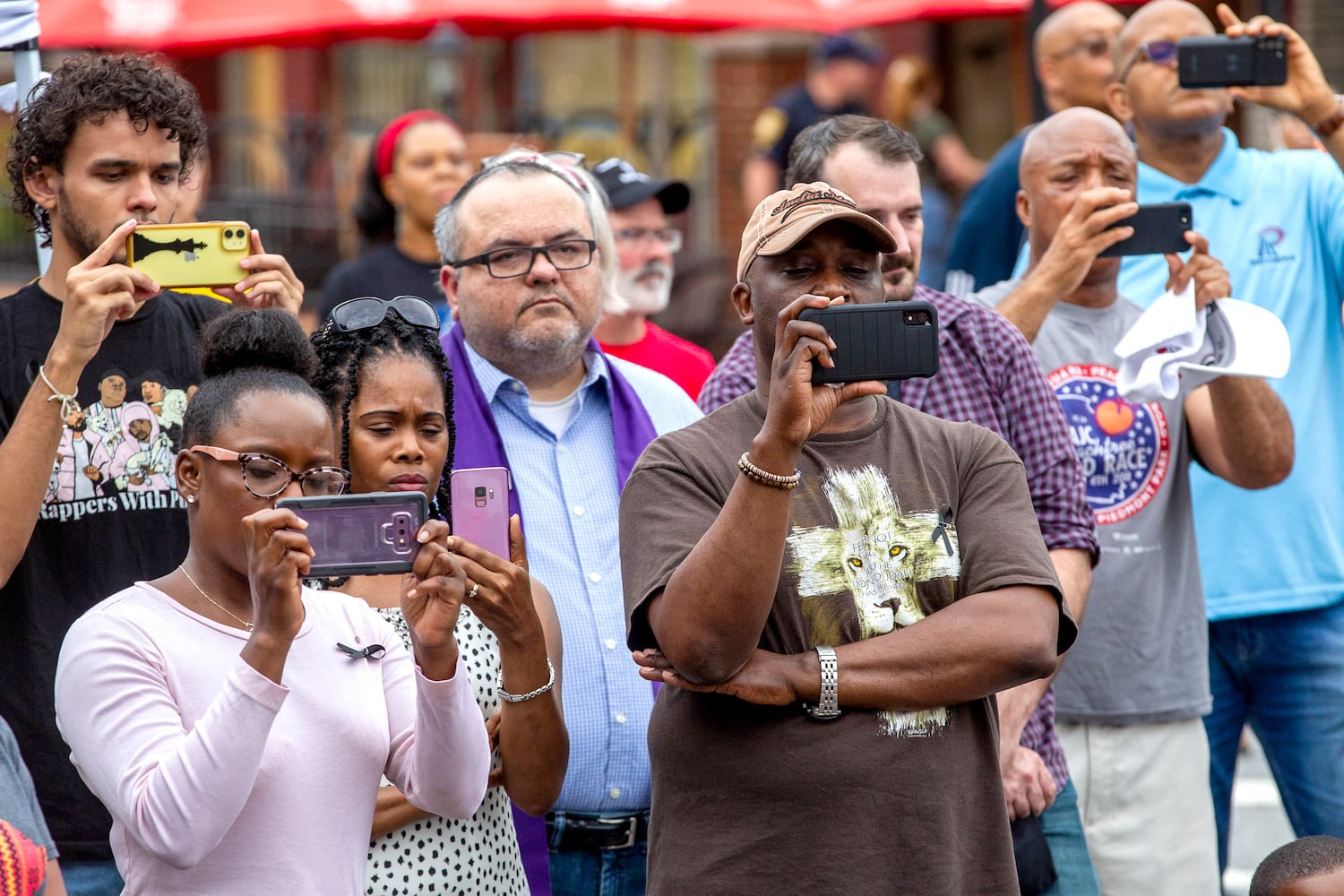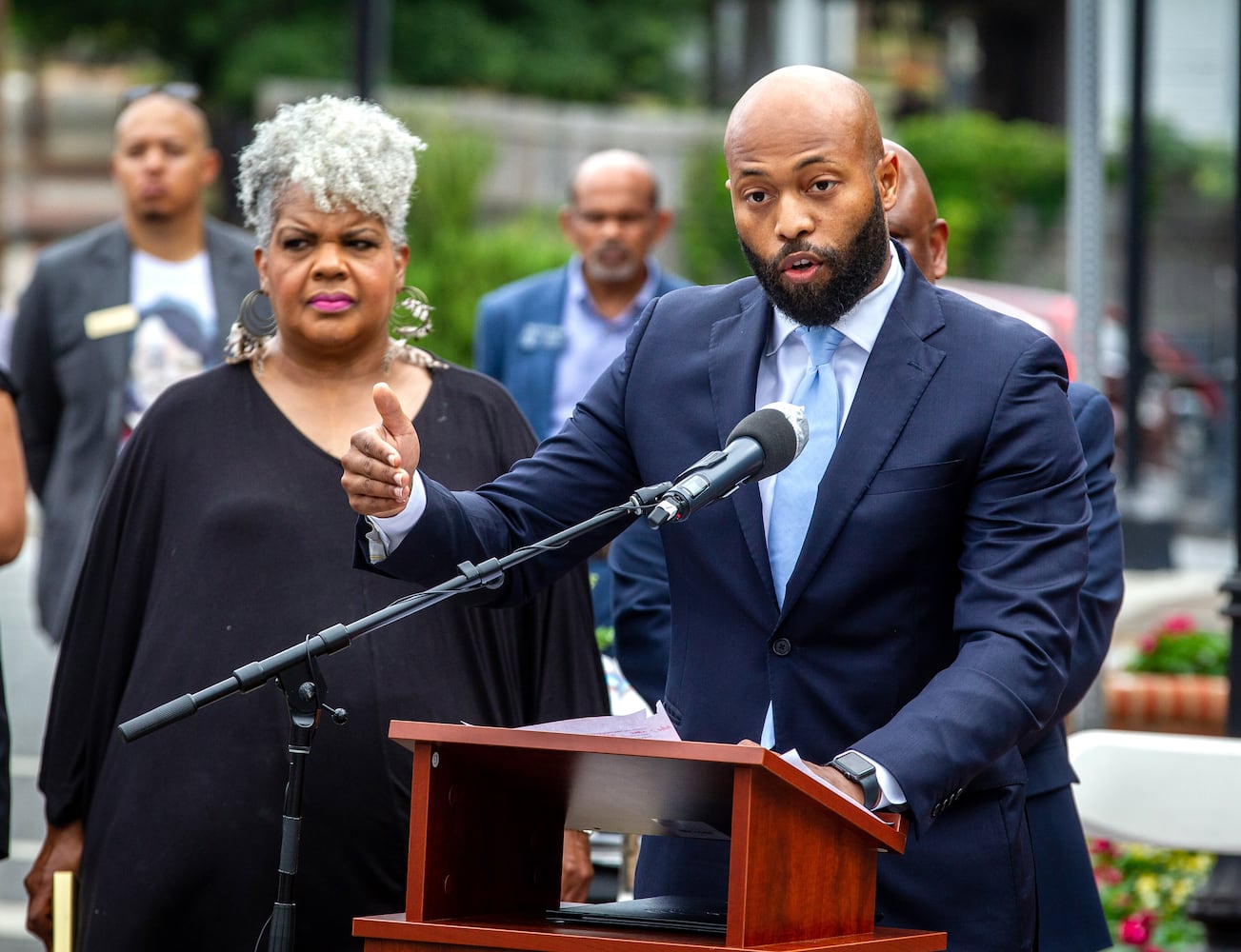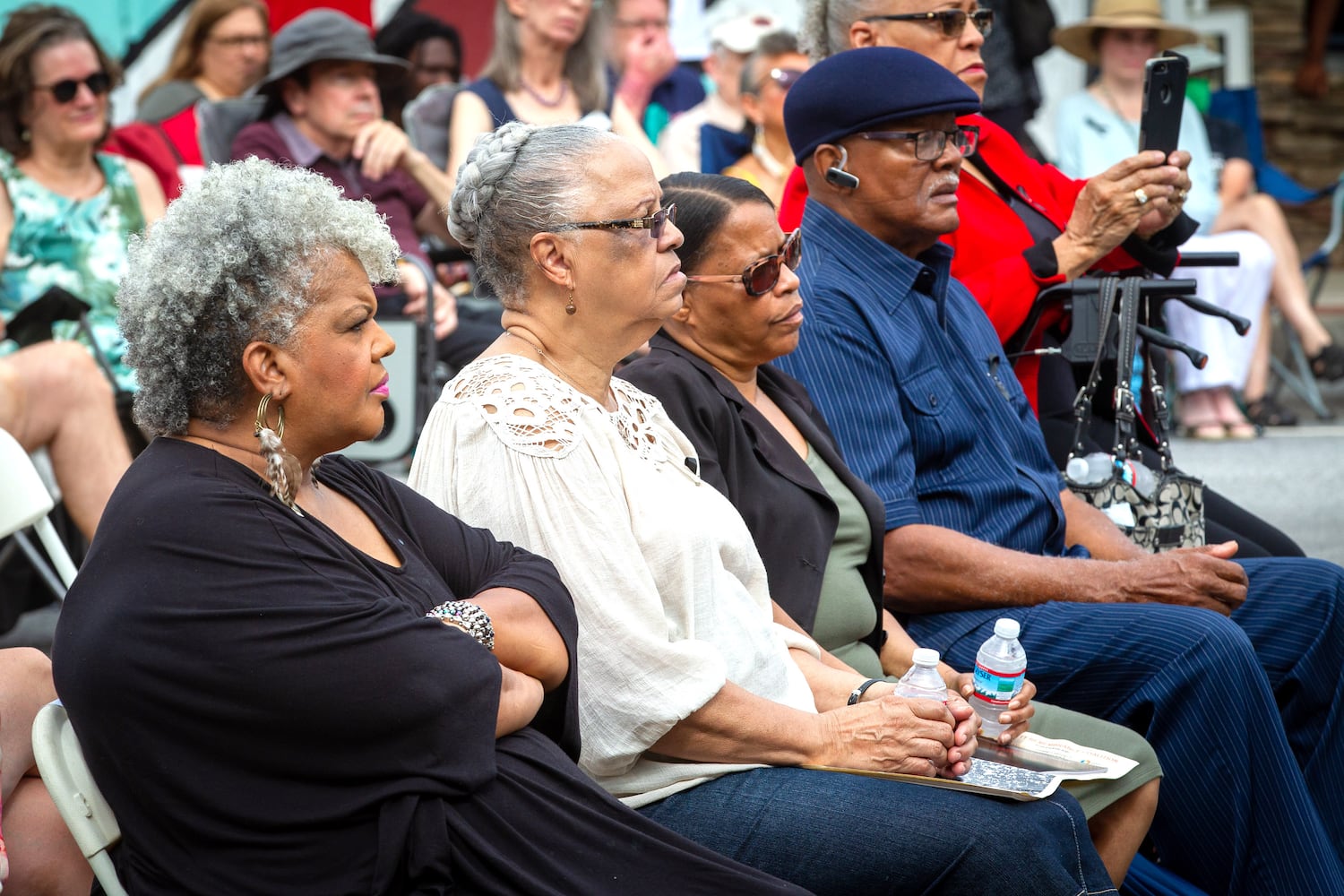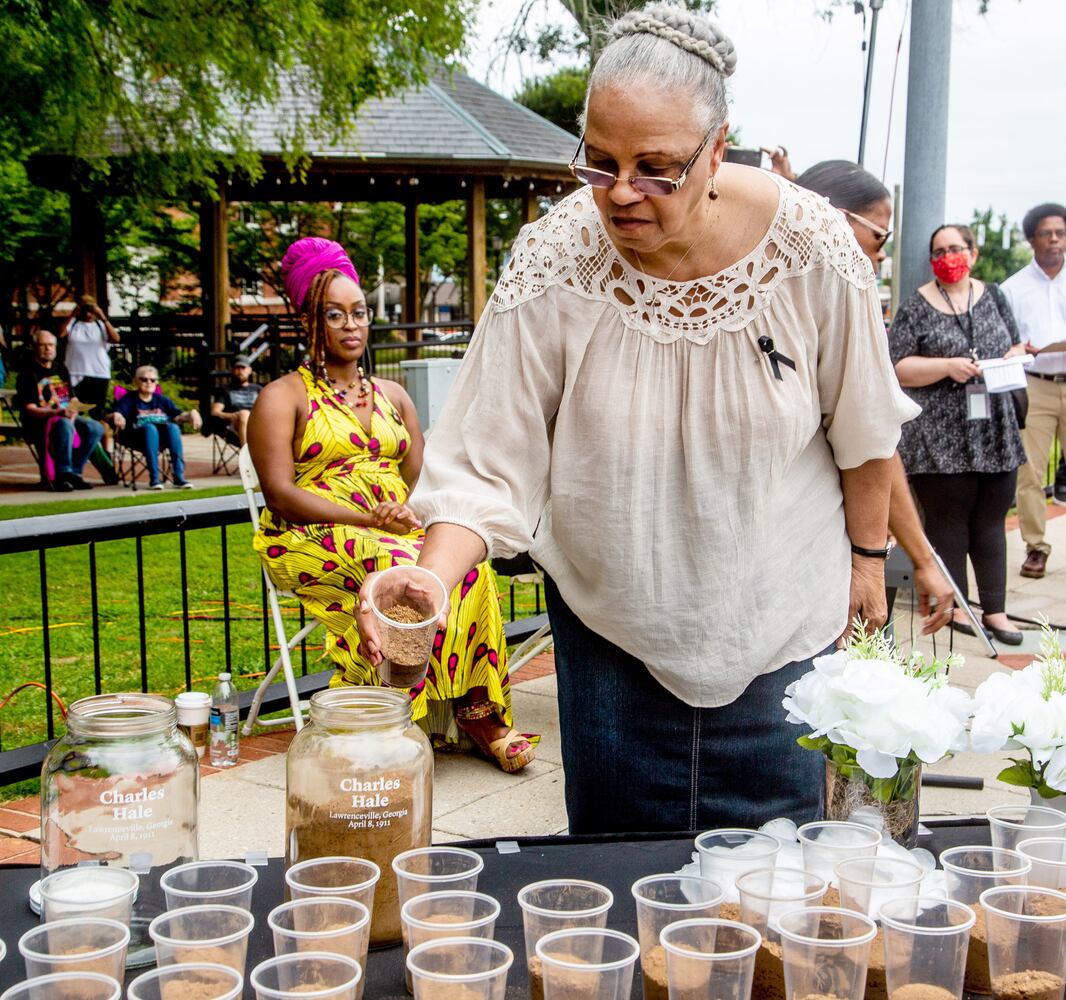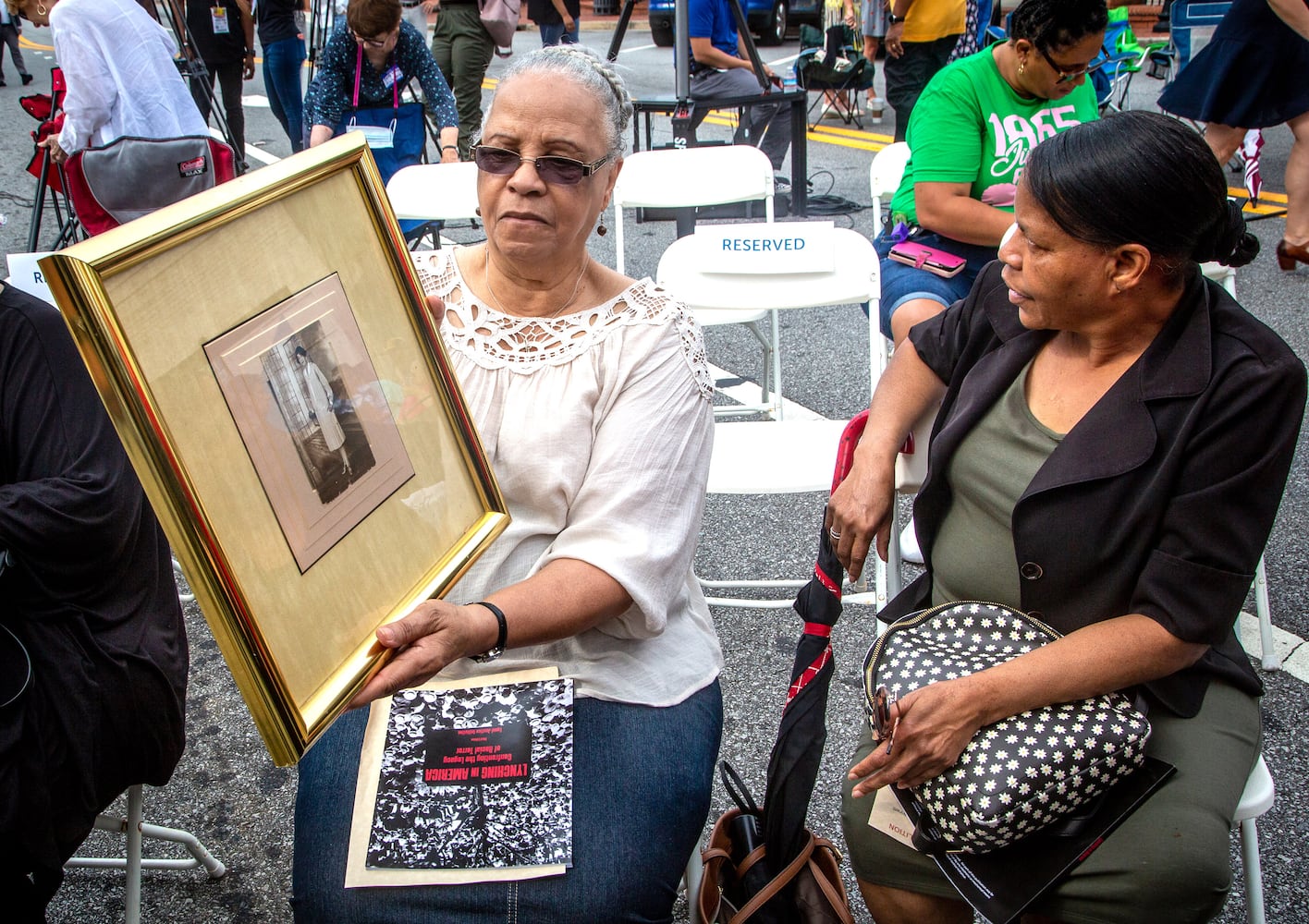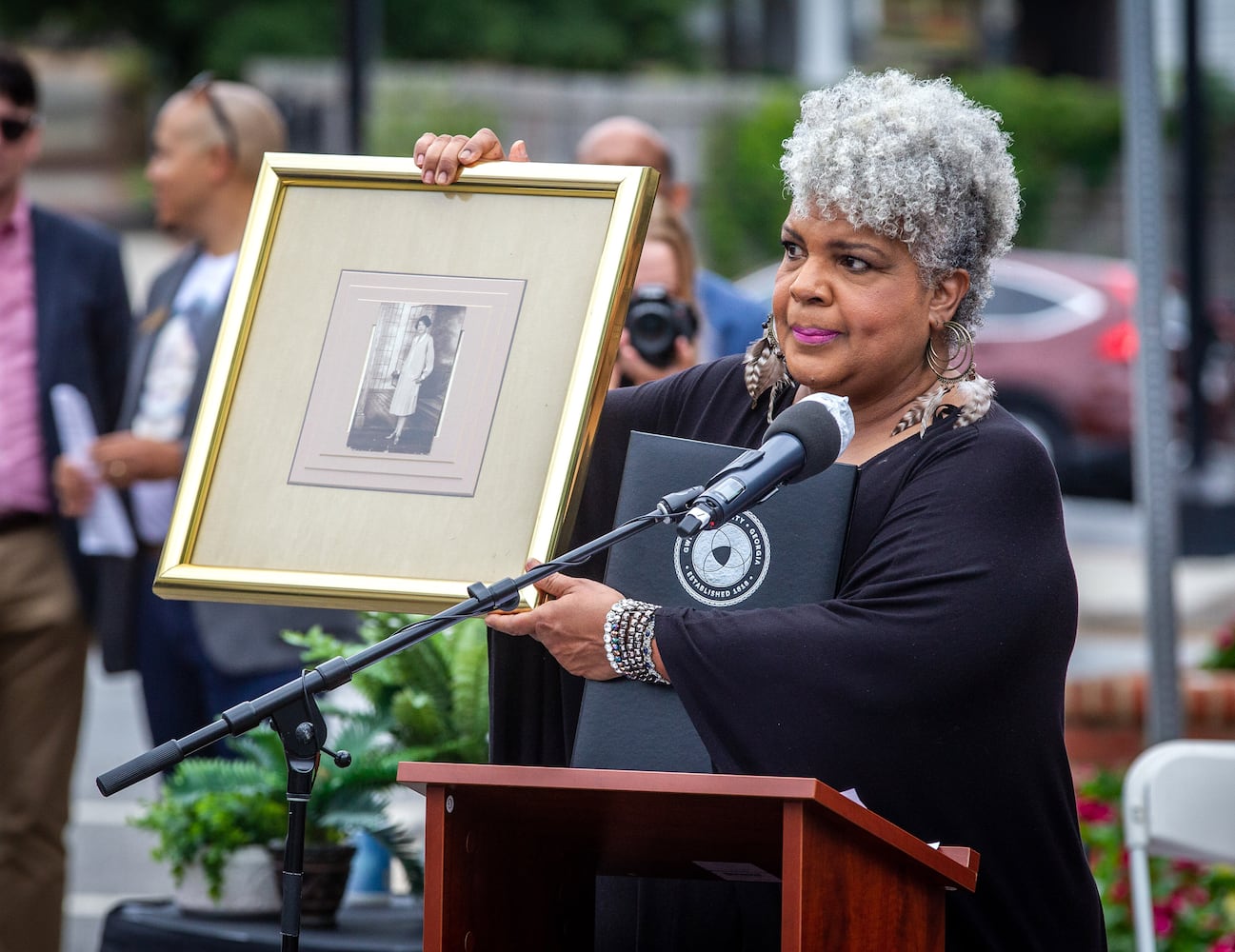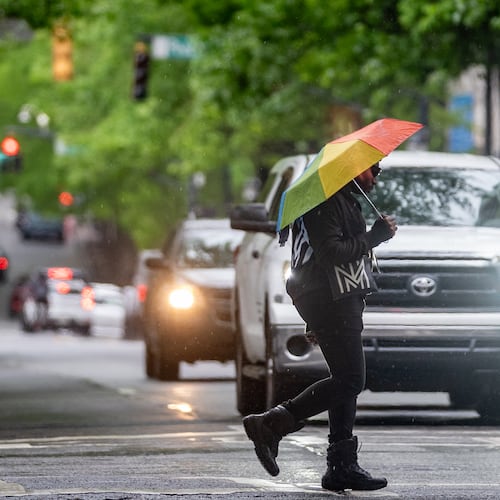A podium sat in the far right lane of North Perry Street in Lawrenceville, near the spot where officials believe a Gwinnett County man was hanged from a telegraph pole 110 years ago by an angry mob.
Samia Abdulle stood at the microphone. “Can we collectively say, ‘Charles Hale’?” she asked the diverse crowd of about 200 people Saturday morning.
“Charles Hale,” they repeated.
Hale, largely anonymous for more than a century, was memorialized on Juneteenth — a new federal holiday that commemorates the end of slavery. For the first time, Gwinnett and Lawrenceville officials recognized his life and his death as soil near the place where he was lynched was collected for display in an Alabama museum.
“His name was probably called today more times than in his entire life,” said Ray Harvin, the facilitator of the Gwinnett Remembrance Coalition, one of the organizations that planned the ceremony. “Lots of Charles Hales, unknown people, never have an opportunity to have a day like today.”
The recognition was bittersweet, said Inger Williams, Hale’s niece. She said she grew up knowing the family history — she was raised next door to her aunt, Willie Williams, who was about 20 years old when her husband was killed, and who died in 1981. Inger Williams said her aunt didn’t choose to revisit the lynching, so she knew little of the uncle who was killed decades before she was born.
Williams said she was happy for the acknowledgement of the circumstances surrounding Hale’s death, but “very, very sad human beings can do such an evil act.”
“It was heartless,” she said. “It was inhumane.”
Members of the Gwinnett Remembrance Coalition told how deputies arrested Hale in April of 1911, about three miles from where a prominent white woman said she had been assaulted. He was later pulled from the jail and strung from a telegraph pole, where his body stayed overnight. People came to take pictures with his body, and souvenir postcards were made of the hanging. Hale was buried in a pauper’s cemetery.
As Harvin poured a cupful of soil near the site of the lynching into a jar, he said, it caused him to stop and think about the injustice Hale faced.
“Charles Hale, 15 minutes before the posse arrived, had no clue,” Harvin said. “He died alone.”
Soil to fill the jars was collected from the closest accessible location near where Hale’s lynching occurred. The jars bear his name; Lawrenceville, Georgia; and the date of the lynching. One will be housed at the new Lawrenceville branch of the Gwinnett County Public Library. Formerly the Hooper-Renwick School, it was long the only public school in the county for Black residents.
The other will also go to the Legacy Museum, near the National Memorial for Peace and Justice in Montgomery, Alabama. Run by the Equal Justice Initiative, the museum houses soil from other areas where lynchings occurred. The group also works to erect public markers to memorialize lynching victims. One to permanently memorialize Hale on the Lawrenceville Square — where a Confederate monument, erected in 1993, was removed earlier this year from the same corner — is already in the works.
At the time of Hale’s death, Remembrance Coalition member Curtis Clemons said, Gwinnett and other nearby counties were trying to drive off Black landowners, using violence and racial terror to keep residents subordinate.
Marlene Taylor-Crawford, who leads the Gwinnett Historical Restoration and Preservation Board, said in addition to restoring buildings, the group has a duty to ensure “historical events that have shaped Gwinnett are told truthfully,” even if those accounts cause pain.
Nicole Love Hendrickson, the County Commission chairwoman and the first Black person elected to the role, said it was humbling to participate in the ceremony. Hendrickson, who has made equity for all residents a major platform, said it’s important to educate people about Gwinnett’s history in order to continue to push the county forward.
The struggle for freedom, she said, has been long and arduous.
Thousands of lynchings have been documented in the U.S. by the Equal Justice Initiative, said Ashley Adams, a staff attorney.
“Our lives have been cut short by white supremacy and our freedoms have been taken by white supremacy,” she said. “Mr. Hale is not the only person this has happened to.”
The names of many others, she said, remain unknown.
The morning’s events were heart-wrenching, said Yana Lee-Fong, but she left with a “really good feeling” about the county’s progress.
Paul Grant, a political science professor at Georgia Gwinnett College who is working on a documentary about Hale, said the program was outstanding.
“Much of this is just helping people understand what happened and how it influences who we are today,” he said. “We have to understand where we fell short as a nation.”
About the Author
The Latest
Featured

